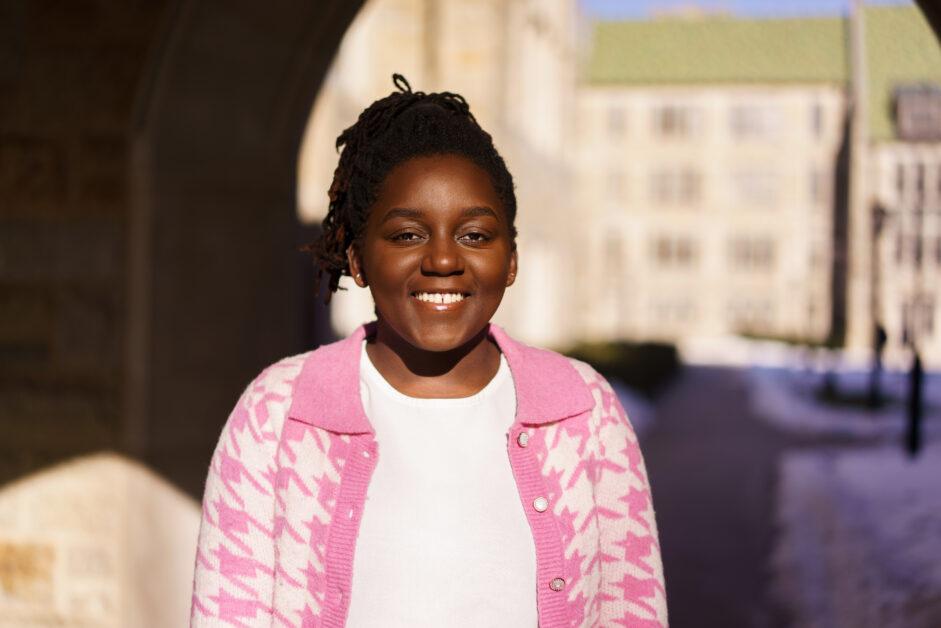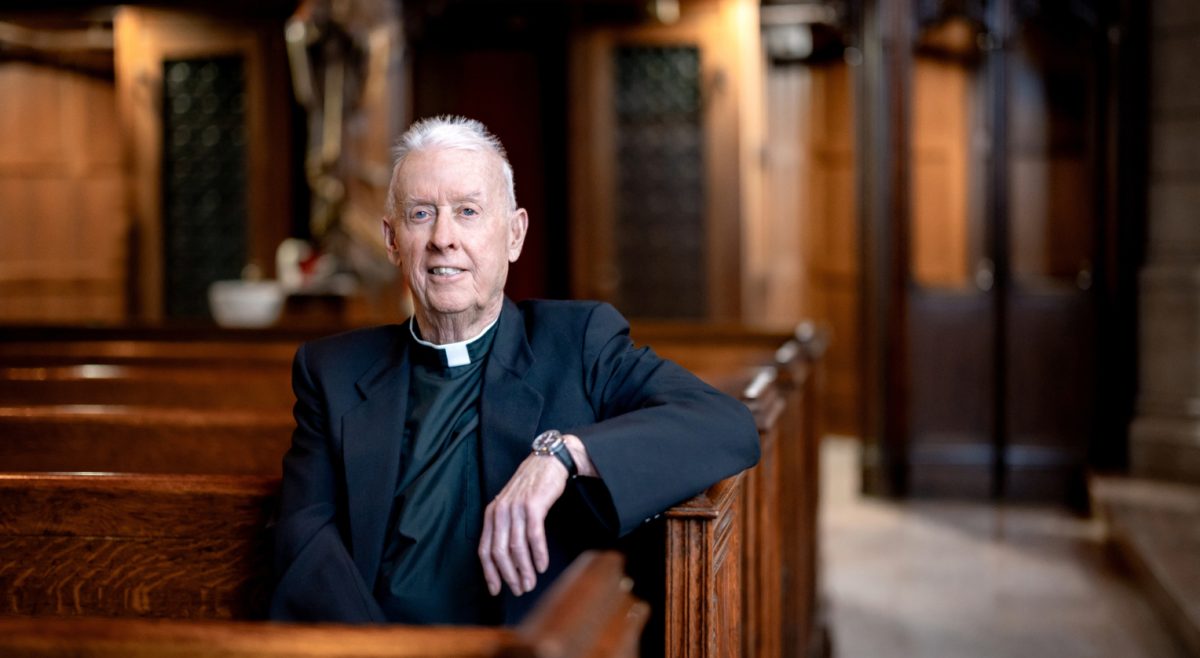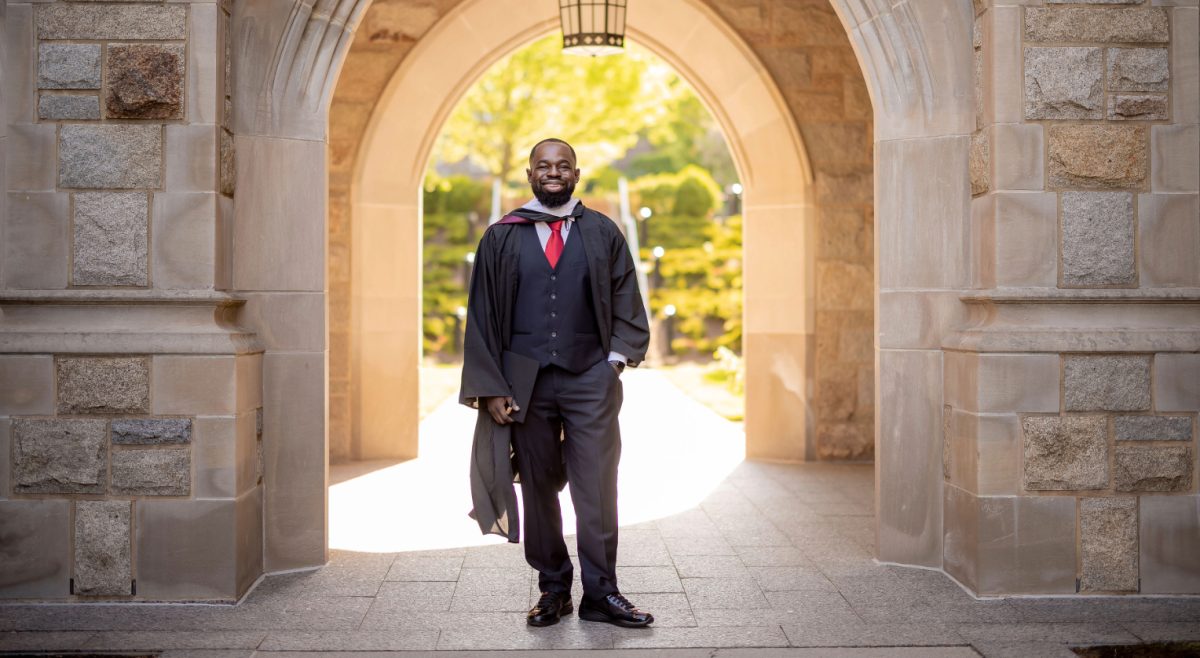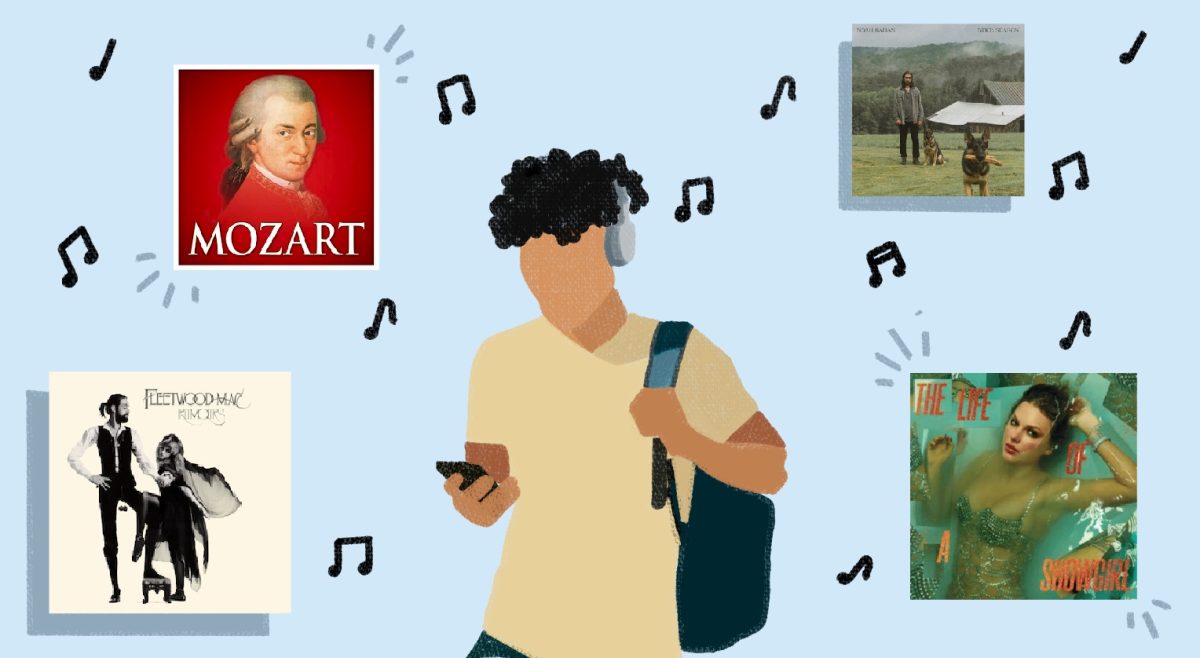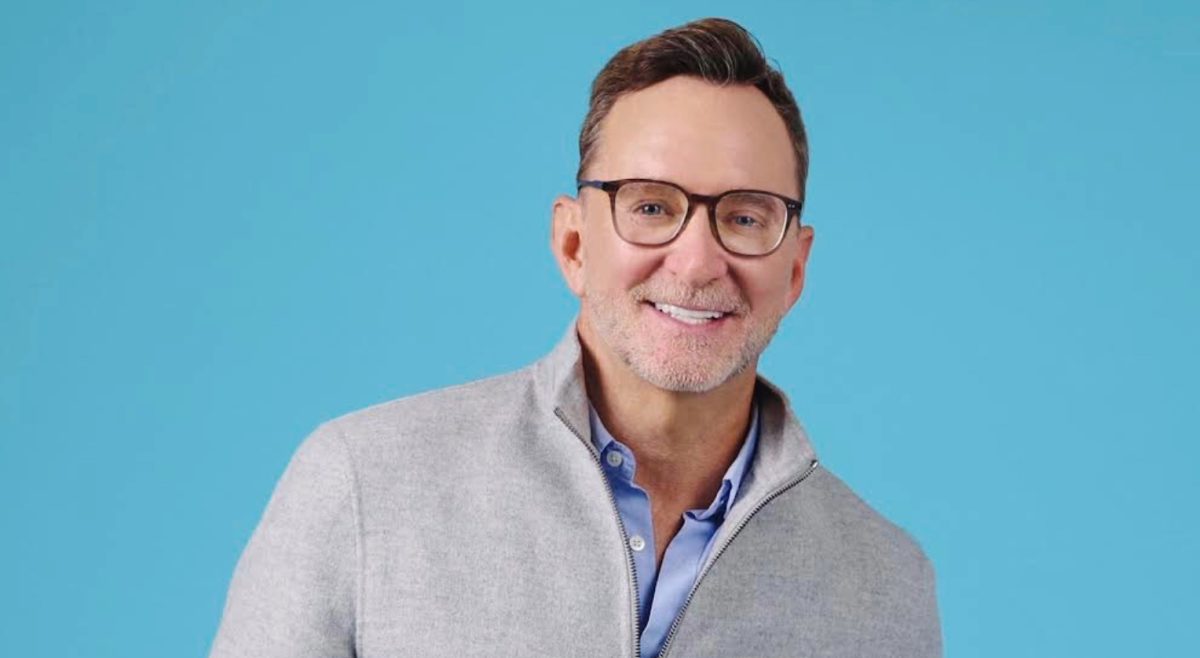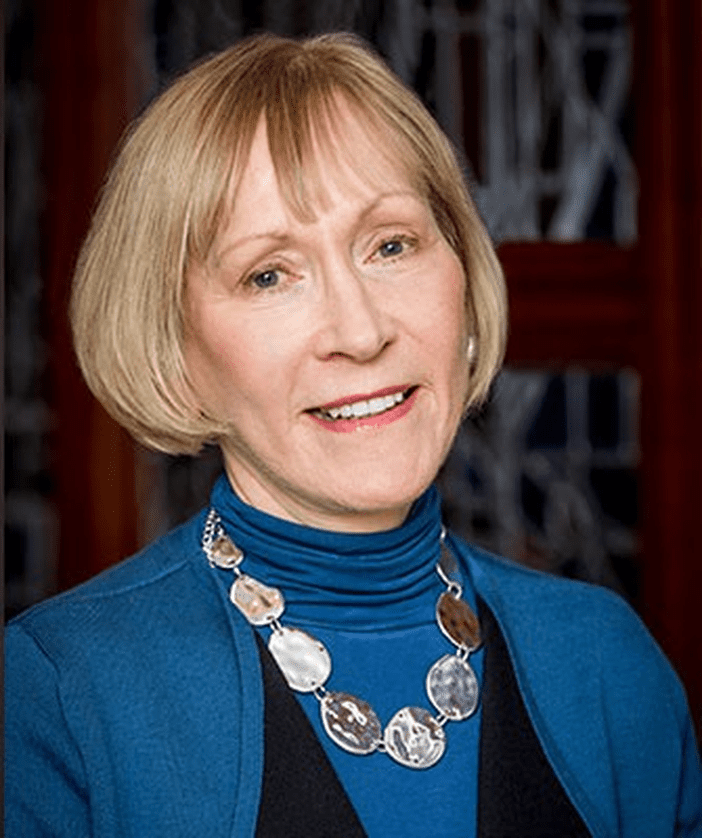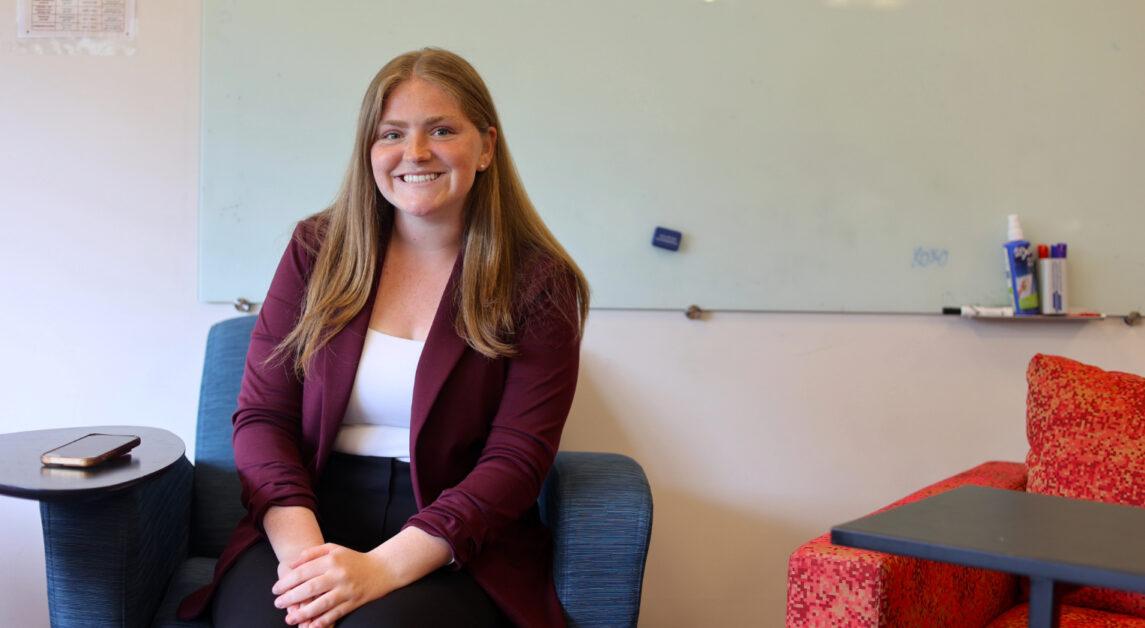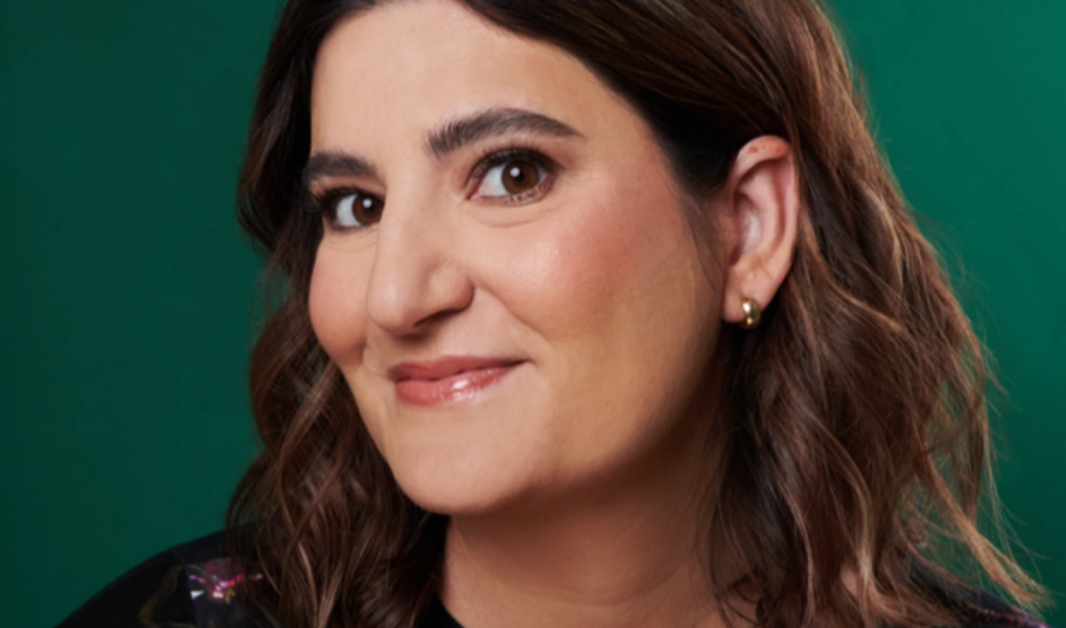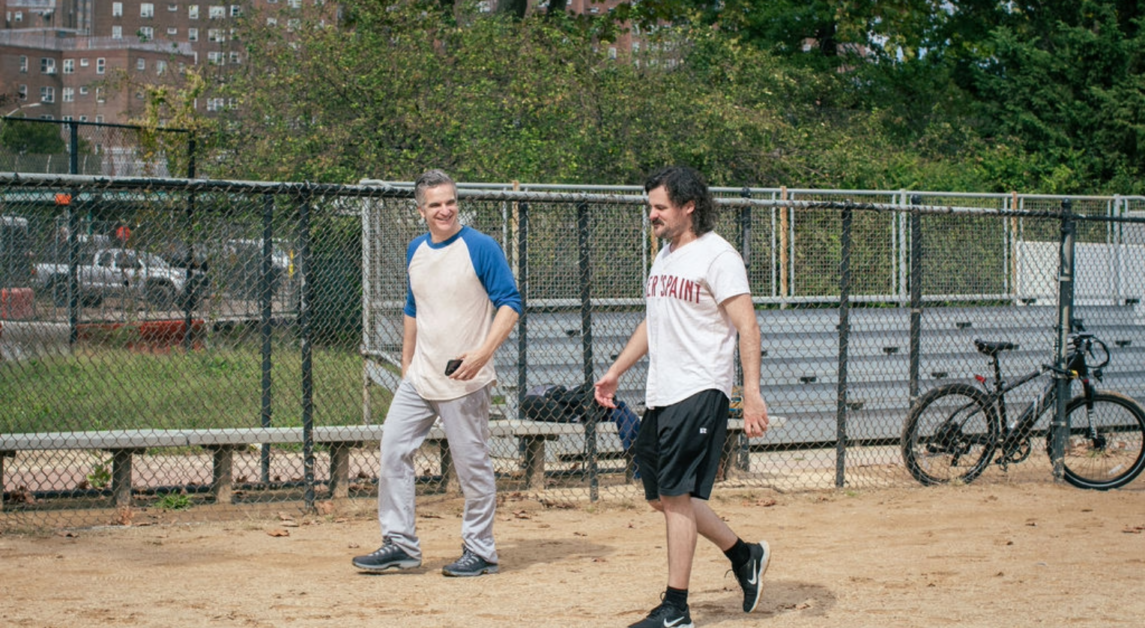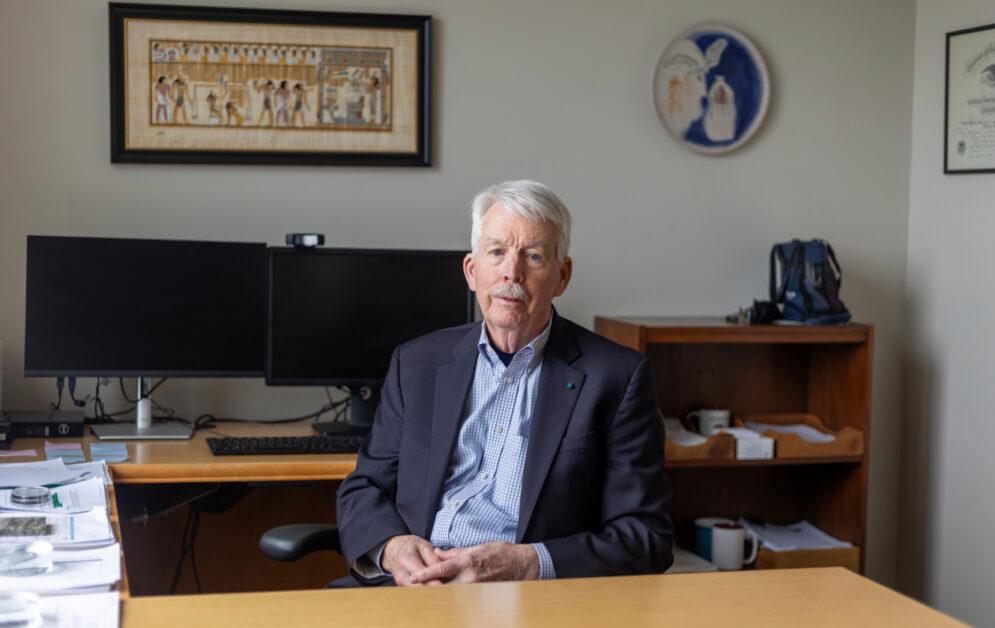Kudzai Kapurura grew up in a town where less than three percent of the population is Black. As a result, Kapurura—a Black woman herself—said she was often subject to microaggressions from her peers.
“Growing up in predominantly white Oregon as a dark-skinned Black woman of African descent was not easy,” Kapurura, MCAS ’23, said. “As you can imagine, middle school was very difficult. We were the butt end of every joke.”
Kapurura’s experiences with microaggressions as a child in her hometown, the predominantly white Salem, Ore., called her to pursue social justice, she said.
“From a young age, I’ve always had to stand up for myself,” she said. “[People would say,] ‘Why does your hair look like that?’ or ‘Why is your skin so dark?’”
In high school, Kapurura said she was one of two students in Oregon to be a part of the state’s board of education, where she fought for equity and resource availability for low-income students and students of color.
Further developing her passion at Boston College, Kapurura is an ambassador for the Thea Bowman AHANA and Intercultural Center (BAIC), facilitates dialogue about racial progress with Courageous Conversations, and has presented a TED Talk about her experience being a first-generation student—all forms of service and leadership that helped her win the 2022 Martin Luther King, Jr. Scholarship.
“[These are] opportunities of service in a variety of different ways, whether that’s mentorship to other peers through [a Residential Assistant] position, or whether that’s directly talking about social justice through Courageous Conversations or sharing my story through the TED Talk,” Kapurura said. “Just a lot of different opportunities for service and for giving back or for teaching or educating.”
The Martin Luther King, Jr. Memorial Committee has organized the scholarship since 1982, awarding it to a BC student who advocates for social justice and is a leader in service, Kapurura said. Its recipient is awarded up to $19,000 toward tuition and a $1,000 gift certificate to the BC Bookstore.
Kapurura said she first heard of the scholarship as a freshman when the MLK Memorial Committee asked her to give a speech at the scholarship banquet because of her experience presenting a TED Talk in high school. From there, she talked to various upperclassmen about the scholarship and began to truly understand the meaning of it, she said.
“I came to see that it really stands for service,” Kapurura said. “It stands for leadership. It stands for community. And those are things that I truly very, very much value. So … when I got to junior year, I didn’t hesitate in shooting my best shot and putting in that application regardless of the win or loss, but understanding the value of the scholarship itself.”
The MLK Scholarship is open to BC juniors who exhibit academic excellence, hold an extracurricular leadership position, and participate in service geared toward the AHANA+ community.
These pillars, coupled with her conversations with upperclassmen, compelled Kapurura to apply for the scholarship, she said.
“People just really emphasized this scholarship is about, ‘Do you feel like you are a student leader? Do you stand up for others? Do you advocate? Do you fight for justice? Is your heart in the right place? Is community something that’s important to you?’” she said. “If the answer is yes to these, you should definitely apply for a scholarship like this. So I was really pushed … to apply to [it] my junior because I felt very called to that position.”
Fighting for social justice and engaging in service for AHANA+ students is how Kapurura said she contributes to institutional change at BC. She said she has used her leverage in her different leadership positions on campus to facilitate conversations about racial progress.
“As an RA … I did a whole program centered around microaggressions,” Kapurura said. “So, [I brought] my girls together and [had] this conversation and [createad] a whole presentation about it and then even after [fostered] a really productive conversation in which the girls even voiced some of their own concerns with some … negative racial interactions that they’ve seen or personally experienced on campus. … Or, specifically through Courageous Conversations, [I facilitated] dialogue on a range of different issues. … There’s a lot of different opportunities for me to use my voice.”
Kapurura said she applied to the first round of the scholarship in the Fall 2021 semester, where she had to submit a résumé-style list of activities and honors, her transcript, and a series of brief essays. The second stage of the application process, she said, was an essay about how she reflects the qualities of Dr. Martin Luther King, Jr., an interview before a panel, and two letters of recommendation.
From there, the committee announced five finalists in January, who then attended a banquet on Feb. 22 where University President Rev. William P. Leahy, S.J., announced the scholarship’s recipient.
At the banquet, each finalist presented a five-minute video of a speech about their respective experiences fighting for social justice. Kapurura’s video focused on her upbringing in an economically disadvantaged area in her hometown and how one’s environment contributes to their privilege, she said.
“For students like me, growing up in northeast Salem, we had corner stores and tobacco products … but my friends down the street in South Salem had, you know, the country club and the golf courses around their neighborhoods,” she said. “So even just that, [the] amenities of our neighborhood have a huge contribution to where we should or can end up.”
Kapurura said the other finalists’ videos showed her how qualified they all were, reminding her how effective BC student leaders can be.
“I think by the end, and after watching all of [the videos], I just really realized like, wow, these are some powerful student leaders,” she said. “And we all take up radically different spaces, and if we continue to do the work that we’re all doing in our different spaces, we can all really change our society for the better.”
After Leahy announced Kapurura as this year’s scholarship winner, she delivered a speech in which she acknowledged the accomplishments of the other finalists as well as the work that still needs to be done, said Rev. Michael Davidson, S.J., director of the BAIC and member of the MLK Memorial Committee.
“It was less about her but more about us,” Davidson said. “She acknowledged the finalists. She acknowledged the people who have walked with her, who have helped her to this journey, but also encouraged them that there’s a lot more work to do—that we’re all winners.”
In addition to commending the humility of her speech, Kapurura said several people approached her afterwards to express how impressive her speech was—which she attributes to her oratory skills.
“My biggest form of advocacy and social justice, I believe, is my skill of oratory,” she said. “That’s something I’m skilled in and something I take pride in, and I try my best to use my voice to bring light to … [and] to amplify the experiences of people who look like me and don’t look like me.”
Strong oratory skills, Kapurura said, can contribute to changing the course of the world’s history, and she recognizes that she can use this innate talent to enact change, reflecting the impact of King
“I really emphasized [in my speech] Dr. Martin Luther King, Jr.’s speech, the ‘I Have a Dream’ speech,” she said. “Fifty years later, we still celebrate and consider how this monumental speech pushed toward the [Voting Rights Act], and that’s a testament to how powerful oratory can really be in changing the trajectory of history and society.”
Receiving the scholarship is a testament to Kapurura’s accomplishments and dedication to social justice, Meghan Sweeney, her PULSE Program for Service Learning professor, said.
“I’m delighted,” Sweeney said. “I’m delighted for her. I think it’s a sort of recognition of what she’s done, of her contribution so far, and sort of … encouragement for her continuing work in advocacy.”
Davidson also said he was pleased to hear Kapurura named this year’s MLK Scholarship recipient.
“[She is] committed, very personable, very loving, very kind, and very smart,” he said.
Looking forward, Kapurura plans to attend law school and earn a J.D.-MBA, as a career in law will allow her to continue her pursuit of justice, she said. After leaving BC, Kapurura said the lessons she has learned from her mentors will aid her in achieving these aspirations.
“All of [the] incredible mentors who have had a hand in creating and helping me to become the person who I am and who have taught me so many lessons about leadership, about community, about humility, about hard work, about remembering where you came from, and to give thanks … I wouldn’t be who I am without the mentors and the lessons I’ve learned at BC,” she said.
Featured Image by Vikrum Singh / Heights Editor

